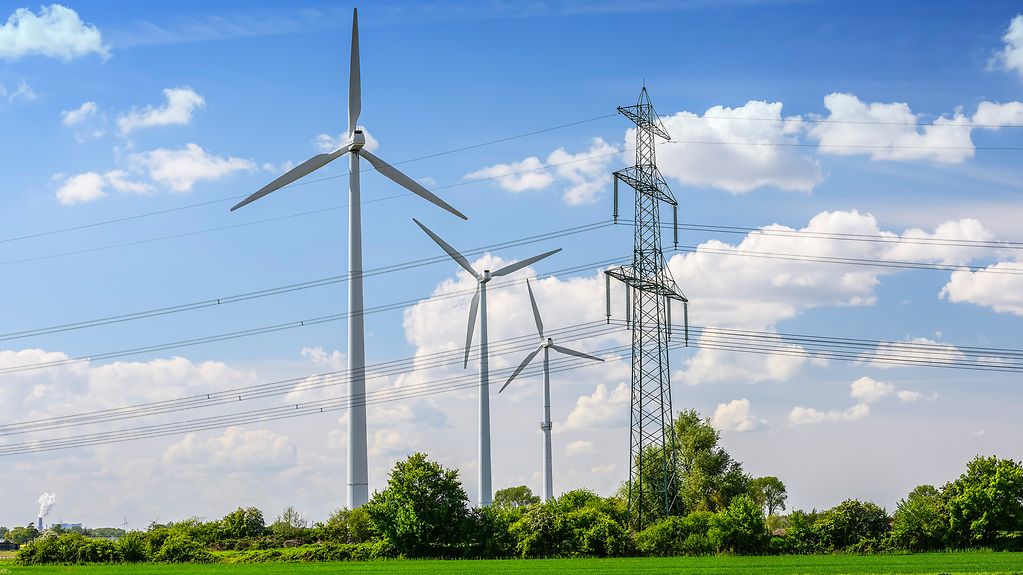Energy Efficiency Strategy 2050
The global economy is growing, and with it the total energy consumption. At the same time, emissions which adversely affect the climate are increasing. In order to counteract this, and manage the use of finite fossil fuel energy sources, the Federal Government developed the "Energy Efficiency Strategy 2050", which has been adopted by the Cabinet.
2 min reading time

Renewable energies have a significantly higher efficiency than fossil fuel energies: so a wind turbine produces relatively more energy than a coal-fired power plant.
Photo: mauritius images
By 2050, the primary energy consumption in Germany should be halved in comparison with 2008, thereby protecting consumers against too high energy bills, and becoming the most energy-efficient economy in the world. This is the goal which the Federal Government has set out in this area for the first time, with its "Energy Efficiency Strategy 2050". Because the German economy is more sustainable, the more energy-efficient it is.
Energy efficiency describes the relationship between the quantity of energy used and its benefits - for example, for heating a room to 20 degrees, or manufacturing a device.
The primary energy consumption refers to the total energy used in a country from all energy sources. It is calculated as the sum of all domestic energy sources plus the balance of the imported/exported quantities, as well as the changes in inventory minus the stored supplies.
Benefits already visible in the short term
"The strong emphasis on energy efficiency in the Climate Action Programme and in the Energy Efficiency Strategy is not only sensible, but simply essential," said Federal Minister for Economic Affairs and Energy Peter Altmaier. From 2008 to 2018, the energy costs for consumers declined from almost 8 percent to 6.6 percent. In addition, investments in energy-saving refurbishment of existing buildings created employment for around 573,000 people in 2017.
Targeted measures
In specific terms, this means a reduction in primary energy consumption in the production sector: Renewable energies have a significantly higher efficiency than fossil fuel energies. So a wind turbine produces relatively more energy than a coal-fired power plant.
On the other hand, the reduced demand in households will become very noticeable. Tax incentives for energy-saving refurbishment of buildings, the upgrading and expansion of district heating networks, and further developing the urban renewal programme are among the measures.
A national decarbonisation programme is resulting in more efficient production processes. This is done through funding CO2-reducing and energy-saving technologies on their way to market-readiness, for the energy-intensive sectors of industry.
Also, traffic is being managed more efficiently, with increased passenger and freight transport by rail, and modernisation of inland waterways and onshore power supply in ports. Buying incentives for electric vehicles, tax relief for low-carbon dioxide cars, and tax incentives for electric mobility and alternative means of transportation, are also planned in the framework of the strategy.